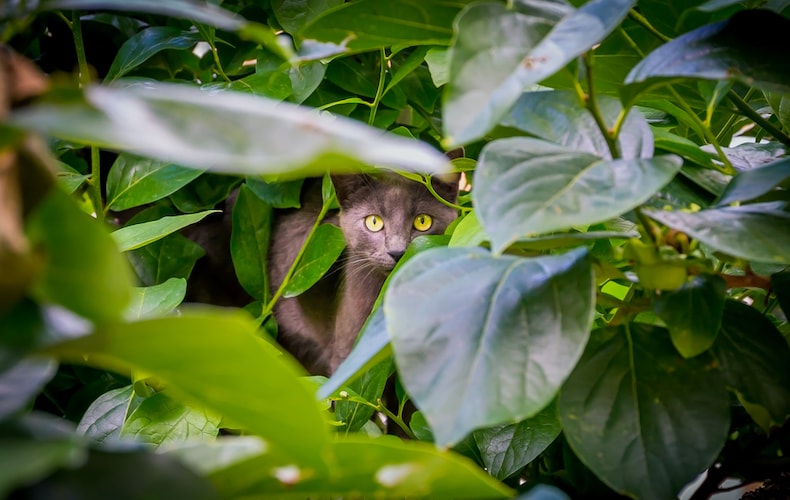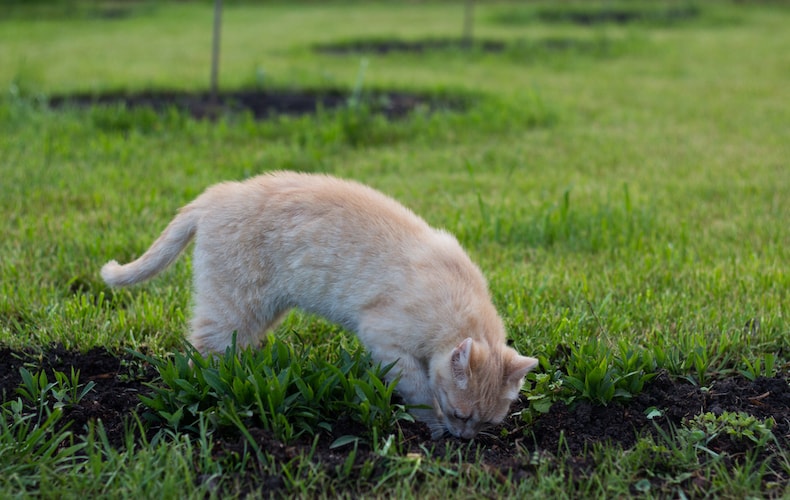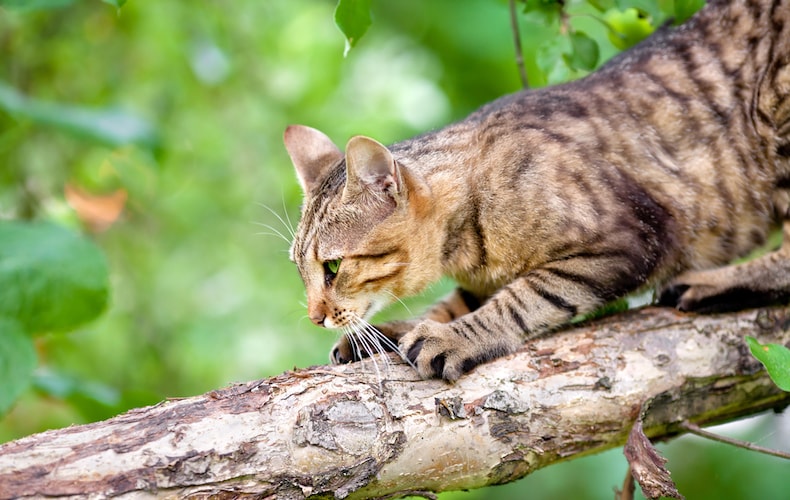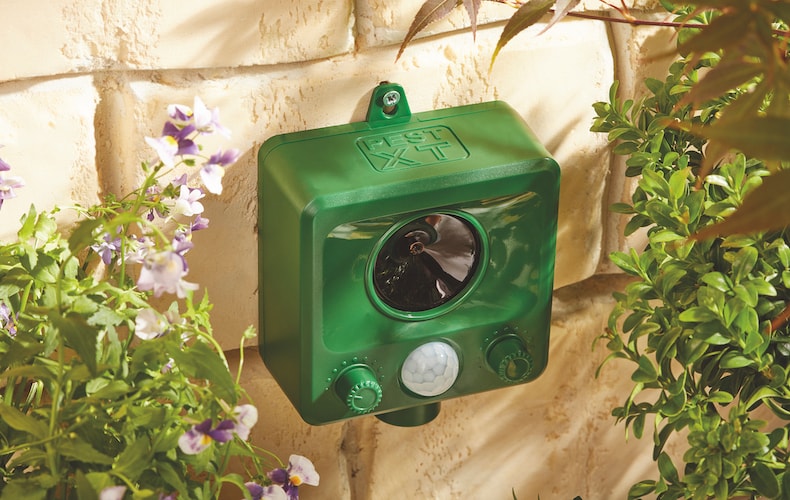Garden pests - Cats

Keep troublesome moggies out of your garden
Image: Maciej Czekajewski/Shutterstock
Whether or not you actually own a cat, if there are moggies in the neighbourhood, you’re likely to have experienced cat damage in your garden. Here’s how to minimise the havoc our feline friends can cause.
Why are cats a gardener’s problem?

Destructive toileting habits can ruin cultivated lawns and beds
Image: HildeAnna/Shutterstock
Cats are notoriously independent domestic pets. Their habit of toileting outdoors in freshly raked earth can make life rather unpleasant for suburban gardeners.
They are territorial creatures, scent marking ‘their’ home ranges with scorching urine, or by scratching tree bark.
Cats are also excellent predators, and can terrorise your garden bird population.
How do I recognise cat damage in my garden?

Check your tree bark for scratch mark damage
Image: vvita/Shutterstock
Cats can be quite destructive in the garden. Here’s how to spot cat damage:
- Excrement buried in flower and vegetable beds, or left on paths and lawns.
- Plants dug up where cats have dug holes in beds to bury their poo.
- Scorched foliage from urine and scent marking.
- Scratching on tree bark.
- Crushed flowers and grass where cats have been sunbathing.
- Dead wildlife (birds and small mammals) remains left in the garden.
Which plants do cats eat?
Cats will sometimes chew on grass and tender leaves, but not enough to cause any real problems in your garden. Most cat damage is done as a by-product of their natural behaviours - burying their excrement and scent marking.
How can I protect my plants and garden from cats?

Install an electronic repeller to keep cats at bay
Image: Pest XT Ultrasonic Battery Powered Repeller from Thompson & Morgan
Cats are independent creatures with a wide range. If you don’t have your own feline friend, It’s likely that any cat damage you’re experiencing is being caused by a neighbour’s cat, which can put a strain on neighbourly relationships. Here are some effective, gentle ways to deter cats from damaging your garden:
- Try natural repellents - many cats dislike the smell of citrus fruits. Try scattering lemon peel around the garden, or growing some 'Scaredy Cat’ (Plectranthus ornatus). This plant has a pungent smell that some cats find unpleasant
- Net off delicate plants - put netting around young plants, or grow them through chicken wire to prevent cats from digging up the fresh soil around them.
- Keep soil damp - cats prefer digging in dry soil. Keeping soil damper may help to discourage them.
- Fill flower beds with dense planting - pack beds full of perennials with little bare earth showing to remove the temptation to dig.
- Install an ultrasonic repeller - try an electronic cat repeller. These emit a high frequency sound which puts some cats off, but is inaudible to humans.
- Spray cats with water - Most cats hate water. Try spraying them whenever you see them in the garden. You can even buy an automatic jet spray cat repeller with a motion sensor to protect vulnerable areas in your garden.







